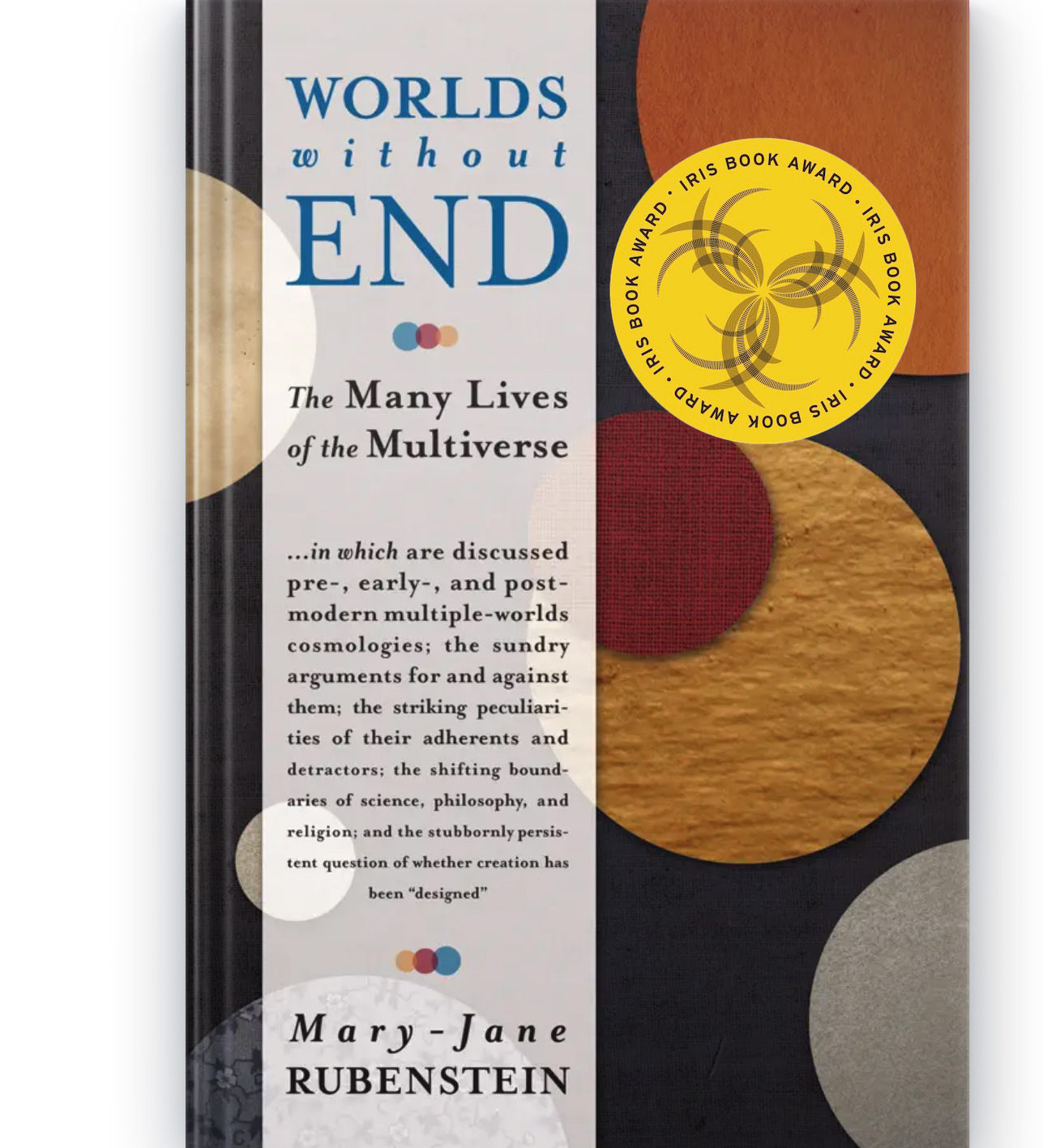January 27, 2023 – for immediate release
Bloomington, Indiana & Santa Barbara, California
The Center for Religion and the Human at IU Bloomington announces Mary-Jane Rubenstein’s Worlds Without End: The Many Lives of the Multiverse (Columbia University Press, 2014) as winner of the third annual Iris Book Award. Rubenstein is Professor of Religion and Science in Society at Wesleyan University, where she is also affiliated with the Philosophy Department and the Feminist, Gender, and Sexuality Studies Program.
Jurors for the Iris Book Award praised Worlds Without End as “a delightful tour of a topic that was once esoteric, but now is hovering on the edges of science fact: that we do not exist in a universe, but rather in a multiverse,” and called the book “a fascinating and entertaining exploration of the history of an idea that just won’t quit; from the ancient atomists to modern cosmologists, the hunch that 1 plus 1 might add up to infinity – infinite worlds, infinite cosmos – has influenced everything from physics to theology.”
The Iris Book Award is directed by former IU faculty member Lisa Sideris, now Professor and Vice Chair of Environmental Studies at the University of California Santa Barbara.
“With Rubenstein as our witty and erudite tour guide,” Sideris said, “Worlds Without End steers the reader through centuries of vexation over the question of multiple worlds. Along the way, she puts to rest the comforting notion that physics and metaphysics, science and religion, solid facts and deep-seated human anxieties occupy separate, sealed compartments.”

Asked about the origins of the book, the prize-winner explained that Worlds Without End was the result of having “finally fallen in love” with science:
Through a series of strange accidents, I kept stumbling on these dizzying cosmologies coming out of astronomy, quantum physics, and string theory, and thought: “this sounds weirdly like the stuff I study.” What I found in modern cosmology is, first, an enchanting record of the history of Western thought; and second, a surprising site for the generation of new mythologies. In this book, science is neither at odds with religion nor reconciled with it, but rather its unintentional product and its unintentional source.
The Iris Book Award is an annual prize honoring outstanding work that gives new insight into the meaning and status of the human in relation to science, religion, and nature. Books considered for the award are nominated by academic and popular presses, and by scholars working in areas related to science, nature, religion, and technology. The award is one of several initiatives supported by an initial $1M grant from the Henry Luce Foundation for the “Being Human” project.
This year’s award ceremony will be held at the annual meeting for the International Society for the Study of Religion, Nature, and Culture at Arizona State, in Tempe, on Saturday, February 4.
A recording of the event is available here.